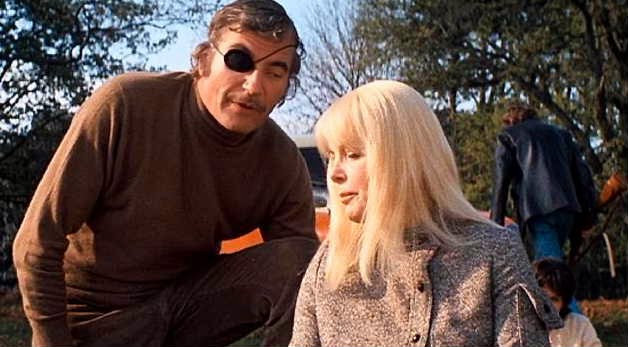 |
| Jack Palance |
DRACULA (aka
Dan Curtis' Dracula/1974 telefilm). Produced and directed by Dan Curtis.
Jonathan Harker (Murray Brown) travels to Transylvania in Hungary to meet with Count Dracula (Jack Palance of
Sudden Fear) at his castle. Dracula needs property in London to carry out his plans, which include meeting up with the reincarnation or lookalike of his lost love, who in this century is named Lucy (Fiona Lewis). Dracula's plans go awry thanks to the interference of Professor Van Helsing (Nigel Davenport), and the hunt is on for the vampire before he can destroy Lucy's friend Mina (Penelope Horner). Well-produced for a TV movie, this version of Dracula still smacks more of sunny California than Transylvania, but its main problem is a slow pace and a general lack of suspense and excitement. Palance has his moments as the evil count, but he is borderline hammy and not as effective as one might have imagined. Lewis is solid, but Simon Ward [
The Chosen] generally doesn't bother to work up much emotion in his portrayal of the doomed Lucy's fiance, Arthur. Davenport [
Mary Queen of Scots] is okay as Van Helsing, but frankly neither he nor Palance can wipe away the memory of
Christopher Lee and Peter Cushing in the same roles. Murray Brown is quite good as Harker, however. This version of the story eliminates the crazy Renfield, there are no scenes of Dracula socializing with his victims as in the
Lugosi version, and the supposedly romantic sub-plot (which is
not in Bram Stoker\s novel) is entirely out of place. Sarah Douglas plays one of the vampire women who prey upon Jonathan Harker. A more interesting if much less faithful
TV version appeared on
Masterpiece Theatre in 2006. Dan Curtis was the man behind
Dark Shadows, which also had a vampire obsessed with a lost love.
Verdict: Barely acceptable version of the famous story. **.







